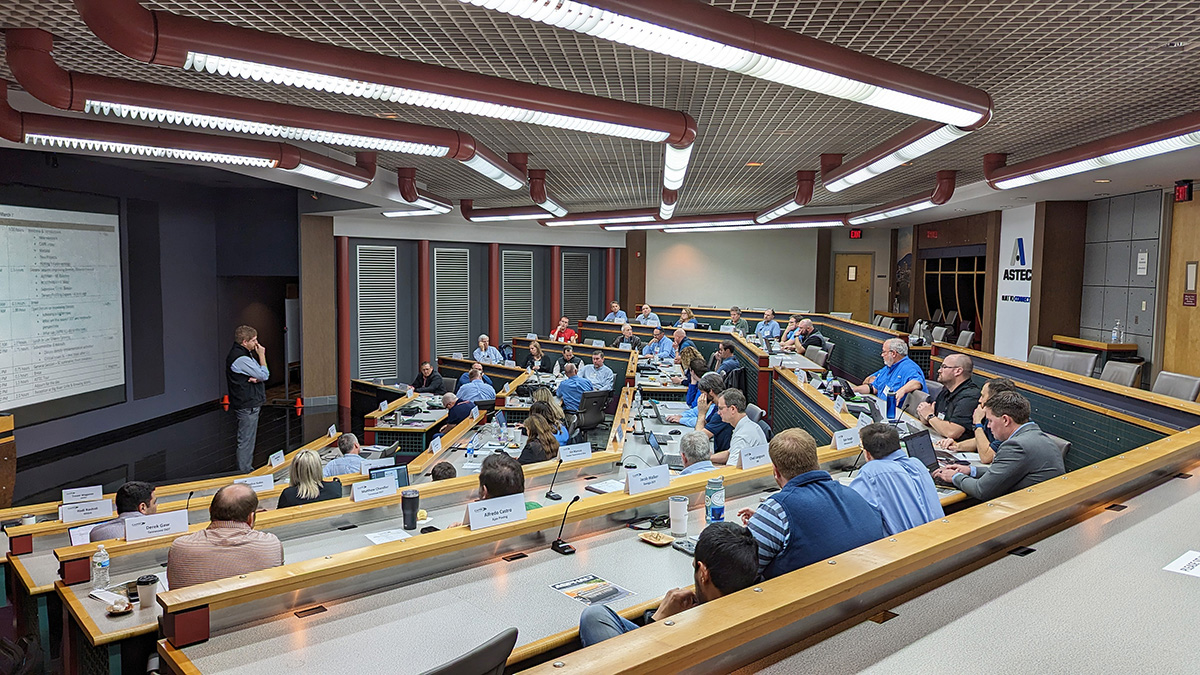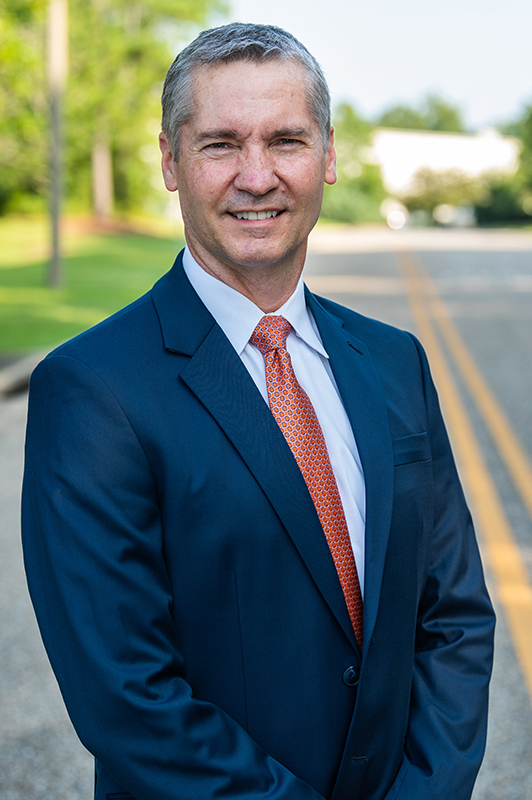- 2023 Fall
CAPRI Gains Momentum

Members of the Consortium for Asphalt Pavement Research and Implementation (CAPRI) met at Astec Inc. in Chattanooga, Tenn. The group, which includes about 50 organizations, also met in Indianapolis, Auburn, Charleston, and plans meetings this fall in Fairfax, Va., and next spring in Ridgeland, Miss.
The Consortium for Asphalt Pavement Research and Implementation (CAPRI) is picking up steam to address gaps in research and foster the implementation of best practices and research findings.
Started in 2021, CAPRI welcomes all stakeholder organizations that wish to influence the discussions on resource allocation for national needs.
Currently, CAPRI includes about 50 organizations, including about half of the state DOTs. Members also include contractors, associations, suppliers, and research institutions.
All CAPRI members contribute financially, but the investment is quite low. Highway agencies contribute $10,000 per year, which covers travel reimbursement for the two CAPRI meetings each year. All other organizations pay $6,000 per year and cover their own travel costs.
Meetings are typically in March and October and are hosted by a member organization, giving participants the opportunity to learn more about other consortium members.
To date, meetings have been hosted by Heritage Research Group in Indianapolis, NCAT in Auburn, Ala., Ingevity in Charleston, S.C., and Astec Inc. in Chattanooga, Tenn. This Fall, the Virginia DOT is hosting the meeting in Fairfax, Va., and next Spring, the Mississippi DOT and Ergon are co-hosting the meeting in Ridgeland, Miss.
Jason Blomberg, with the Missouri DOT added, “I’ve really enjoyed the discussions at CAPRI meetings and connecting with very knowledgeable people from all across the country. A bonus is being able to see first-hand amazing facilities like Astec’s plant manufacturing facility and the labs we’ve visited at Heritage, NCAT, and Ingevity.”
At the first few meetings when everyone shared their challenges and ideas, discussions covered a range of asphalt pavement issues affecting performance and sustainability. In some cases, several participants were unaware of recently completed studies or ongoing research to explore solutions to common problems.
The open conversations were enlightening and helped bring into focus a few prioritized topics.
At the spring 2023 CAPRI meeting, two topics were highlighted: improving in-place density and improving longitudinal joint performance. Resources for improving density have now been curated on the consortium’s website:
www.capriasphalt.us.
The fall 2023 meeting will have further discussions on improving longitudinal joints, and then the focus will shift to Balanced Mix Design (BMD).
One of the first projects commissioned by CAPRI was the development of a guide for building field validation experiments for BMD.
That was a highly-rated research need statement that was initiated out of a Transportation Research Board (TRB) committee but didn’t get funded by National Cooperative Highway Research Program (NCHRP) in 2022.
Seeing a need unfulfilled, CAPRI picked it up and awarded the work to NCAT last March. The draft guide was completed in seven months and is being reviewed before the fall 2023 meeting.
“This project is a great example of how CAPRI can fill in a research gap very quickly to help the asphalt community advance technologies in a more timely fashion,” notes Jon Epps of the Texas Transportation Institute.
The consortium is directed by an Executive Committee consisting of representatives from 11 member organizations, including four highway agencies, the Federal Highway Administration (FHWA), one representative from the Asphalt Institute, one representative from the National Asphalt Pavement Association (NAPA), one representative from a State Asphalt Pavement Association, two contractor representatives, and one representative from a university research center or private research organization engaged in asphalt pavement research.
The Executive Committee drafted bylaws in 2021, that were ratified by representatives from all member organizations in the first year of operation.
“We want to continue to grow CAPRI so that we can be sure to be a forum that involves all stakeholders,” says Richard Willis of NAPA.
Information about how to join CAPRI can be found at www.capriasphalt.us.

Contact Randy West at westran@auburn.edu for more information about CAPRI or visit www.capriasphalt.us.